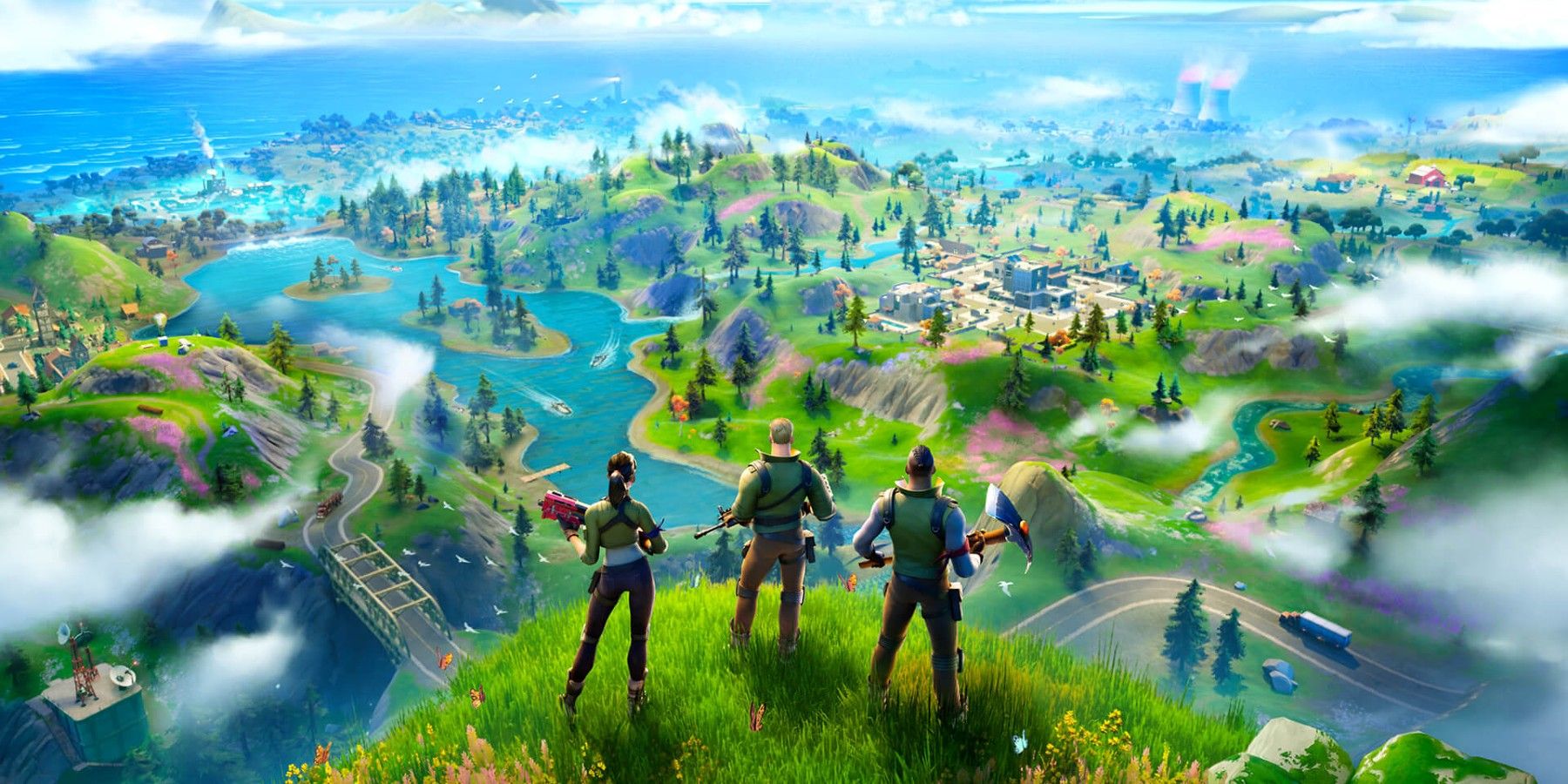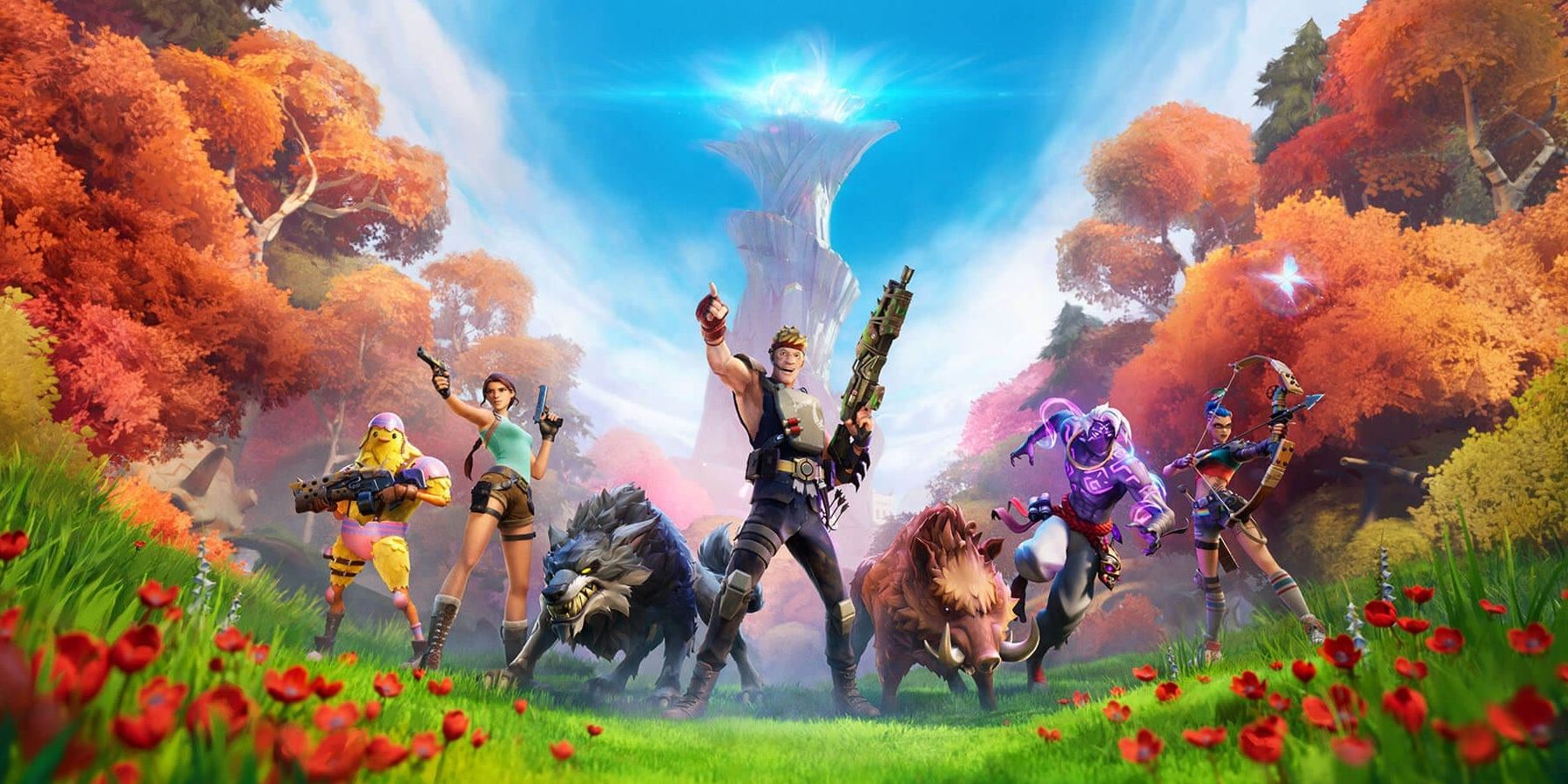Success in the entertainment world is often measured by a few key factors, with money, popularity, and worldwide recognition being the big three; by these measurements, Fortnite is one of the most successful entertainment properties ever created. Released on September 26, 2017, Fortnite changed the video game industry forever, popularizing the live-service model, and revolutionizing the free-to-play battle royale scene. Fortnite was an instant hit on launch, and now, all these years later, it's become a global phenomenon.
Epic Games never expected Fortnite's Battle Royale mode to be as unfathomably popular as it now is. Originally, Fortnite Battle Royale was just a side expansion for the base Fortnite Save the World mode, in which players survived against hordes of cartoony enemies, using building mechanics to gain the upper hand. But when Fortnite's Battle Royale mode launched in September 2017, and gained 10 million players in just two weeks, Epic quickly shifted focus, and doubled down on the game that would soon take over the world.
How Fortnite Became a Global Phenomenon
Back in 2017, the battle royale genre was in its infancy. 2015 saw Z1 Battle Royale hit early access, with The Culling releasing just a year later. While these games saw some mainstream attention, they were far too simplistic and inaccessible to make a significant splash. In March 2017, PlayerUnknown's Battlegrounds launched, and soon became the first truly popular battle royale title. But PUBG still wasn't the most high-quality experience, with some rough visuals, half-baked shooting mechanics, and a slew of technical issues.
In September 2017, Fortnite's Battle Royale mode launched, and it didn't take long for the gaming world to stop and take notice. Developed by Epic Games, a studio with a long and rich history in the gaming industry, Fortnite's quality immediately overshadowed its competition at the time. Combine the inherent quality and lack of technical issues with the game's high level of accessibility, with its controls and mechanics being easy to grasp for newcomers and the game being free-to-play for all, and Fortnite was the perfect storm to kick-start the battle royale genre.
Fortnite was an immediate success, with millions of players signing up and logging in for their first matches in the game's first week. And as any logical publisher/developer would, Epic Games seized the opportunity before it, and got to work on adding new content to the game. Just one month after its initial release, Fortnite received its first Season, which added a handful of cosmetics to the game, which players could buy with V-Bucks. Seeing further opportunity to capitalize on Fortnite's success, Epic Games introduced the Battle Pass in Fortnite Season 2 in December 2017. For just 950 V-Bucks, players would unlock a progression system that rewarded them with cosmetics for completing certain objectives and leveling up in-game. This Battle Pass system was so successful that it's now been implemented in pretty much every multiplayer game out there, from Call of Duty: Modern Warfare 2, to Overwatch 2.
With new cosmetics, weapons, items, and map changes coming with every new Season, Epic Games managed to keep its initial player-base invested in Fortnite, while also continuing to attract new players. 2018 was a gigantic year in Fortnite history, and played a major role in making Fortnite such a global phenomenon. In March 2018, Fortnite streamer Ninja played the game alongside Drake, JuJu Smith-Schuster, Travis Scott, and Kim DotCom in what is now one of the most infamous Twitch streams of all time. This stream gained widespread media attention, and is one of the first instances of Fortnite breaking into the mainstream public conscious.
Just a few months later, in May 2018, Fortnite had its first major crossover with a popular IP, adding Thanos to the game as a playable character in the limited-time mode Infinity Gauntlet. This marks the beginning of Fortnite's long history with pop culture crossovers, which all play a significant role in bringing worldwide attention to the game. In its first 10 months, Fortnite grossed $1.8 billion, and by the end of 2018, that increased to $2.4 billion.
As Fortnite's player-base grows, so does the game's range of content and its overall scope. Over the last five years, Fortnite has added an unprecedented amount of content, ranging from in-game skins to map overhauls to new weapons, items and NPCs. Fortnite has also continued to cross over with a vast library of popular properties, from Star Wars, to Marvel, to DC, to Horizon Zero Dawn, to Uncharted, and everything in between.
Though crossover skins do help to bring in new players, it's the large-scale crossover events that help to bring the most attention to Fortnite. The perfect example of this is the recent Dragon Ball crossover event, where not only a range of skins from the anime were added to the game, but also items like the Nimbus Cloud and the Kamehameha, as well as map changes based on the IP. Fortnite is not only one of the most accessible games ever made, but it's also a constantly-evolving celebration of all things pop culture, and in today's IP-loving world, that's the perfect storm to become a global phenomenon.
Where Fortnite Goes From Here
It's pretty rare in the gaming world to see a multiplayer title not only survive until its fifth birthday, but actually be at the peak of its popularity and success, so Fortnite's future is a little unpredictable right now. It seems pretty likely that Fortnite is just going to continue doing what it's been doing for the past few years, as that's worked incredibly well so far. So, that probably means that fans will see even more crossovers in the future, some of which will probably get big large-scale events tying in with big movie or video game releases. On top of that, Epic seems pretty content to continue its usual three-month Season cycle, with regular updates coming every week or so that add new content to the game, which should keep the game fresh for both newcomers and long-time players alike.
Fortnite popularized the live-service model in gaming, and it continues to be the best example of it. While some publishers have gotten greedy with their live-service approach, using it as an excuse to release a half-baked game with minimal content and sell a bunch of cosmetics on the side, Epic Games has continued to pump new content into Fortnite at a consistent rate, and if that trend continues, then it seems pretty unlikely that Fortnite will lose its luster anytime soon.
Fortnite is available now on Mobile, PC, PS4, PS5, Switch, Xbox One, and Xbox Series X/S.



